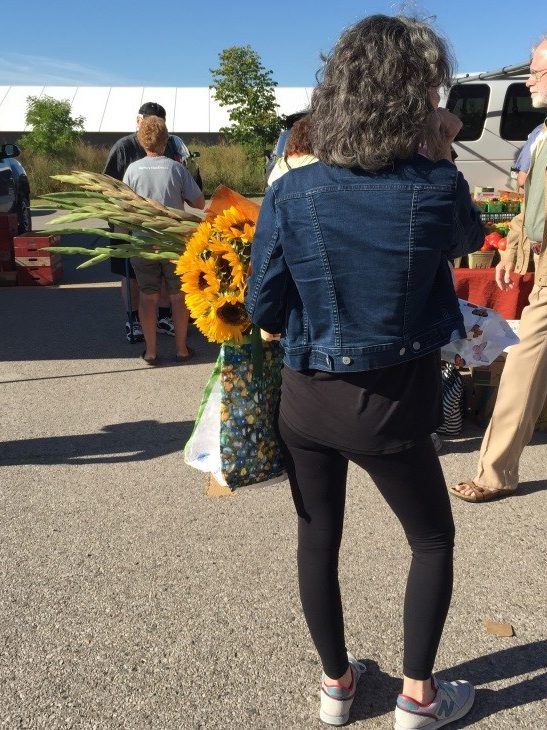Solo Travel with Renee
Are you afraid to travel alone? What if you got lost, attacked or caught up in a violent protest? What if you became ill so far from home? How would you get help?
Travel fears can loom large in people’s minds and it would be foolish to dismiss the fact that it can be a dangerous world. But seasoned, savvy travelers don’t let travel fears quash a great experience. And the stark reality is that any place has the potential to be unsafe in today’s turbulent and unpredictable world. Common solo travel fears are being attacked (or worse), followed or harassed, witnessing violence, getting lost, robbed, losing your luggage, missing a train or flight or becoming sick when alone. All of these fears are reasonable but can be dealt with. I have gotten lost several times abroad (once while bicycling on a dark mountain road in France), lost my luggage and did miss a train because I couldn’t figure out the signage. I always regained my direction or found safety. How you react is crucial to your outcome; panicking only exacerbates any problem.
My Cardinal Rule: keep calm! ‘Prepare for the worst and anticipate the best’ is a favourite motto of mine. I also try to always have a ‘Plan B’ for any eventuality. Be prepared and be aware as you navigate through your destination. Take proactive steps to reduce or eliminate the possibility of an unpleasant encounter ruining your Fabulous Trip.
Here are my top tips for safe Solo Travel:
- Don’t PANIC. Stop, breathe, try to assess the situation and make a plan.
- Never take, wear or carry anything of value. Avoid wearing ‘knock-offs’ as well. Don’t advertise that you are a tourist, try to blend in.
- Never pull out your purse/wallet or count your money in the street. Same with maps.
- Know your destination’s customs and crime levels. In some countries, a woman unaccompanied is considered fair game, and age is no barrier.
- Register with the Government of Canada before you fly. You will then be notified if there trouble at home or abroad, or sought for if the country you are in suddenly has a catastrophe. It’s a free service and one I consider absolutely essential. You can find the link at https://travel.gc.ca/travelling/registration.
- Check travel advisories before you book a trip, especially in countries known for civil unrest or high levels of criminal activity. Book landing times during daylight hours if possible so you aren’t searching for an unfamiliar address after dark in a strange place.
- Grab a business card or jot down the address and phone number of where you are staying. This is the first thing I do when I check in. On the back, write the Emergency Phone code of the country and local Police number. Ask the desk clerk or Google this information. If you get lost, you can show this card for help, even if you don’t speak the language. Try to learn the word ‘Help’ in the language of the country you are visiting. Write it down on your business card.
- Keep cellphones and devices fully charged. Invest in a portable charger to tuck in your bag so you always have backup juice available.
- Beware of too much attention or flattery from anyone. Some locales use children as bait.
- Pack smart and pack light. Less luggage means less worry and if you are only toting one bag, you won’t be distracted or be a target for thieves. Invest in baggage locks – they might be enough to deter a would-be thief even if they do look tiny.
- If you stumble into a troubling situation, do not stop to stare. Walk past or carefully back away, or move sideways. Do not engage under any circumstances, no matter how much you want to help. If you are witnessing a crime, do not look at the perpetrator, look down and remove yourself from the scene. If someone is hurt, do not stop to help; remove yourself safely and when you are secure, call for Police or Emergency Services. You can also approach a restaurant or recognizable business and ask an employee for assistance.
- Do not approach random people in the street for help. Be very wary of local people asking if they can help you – these are often ‘plants’.
- Ask at your hotel which areas are unsafe for wandering in at night. I usually ask a female employee as she will know safe areas and may have good tips for women on their own.
- Don’t stay out too late. I try to return to my hotel by 10:30 p.m. or 11 at the latest. If you are out late, call a reputable taxi service to take you home.
- Watch your alcohol intake and avoid any drug use, even recreational – things can be spiked, not to mention horrendous consequences in some countries for the most benign drug use.
- Use hand sanitizer constantly, and pack some anti-bacterial wipes so you can clean any surfaces as you travel (airplane washrooms, door handles, light switches). Keep a small kit of Gravol, Immodium, Tylenol or Advil, Echinachea and other over-the-counter medications with you to ward off illnesses.
- If you do fall ill, let the front desk/proprietor know. They can check on you periodically, call a doctor or arrange to have medication delivered from a pharmacy. And, of course you would have taken out fully comprehensive Travel Insurance so that the cost of any medical emergency will be covered. It is an expense that will be priceless if you need it.
- You will find more Safety Tips outlined in ‘For Safety’s Sake’, posted on April 23, 2019.
Travel smart, safe and be engaged in your surroundings. Arm yourself with knowledge and prepare yourself for any eventuality so you can enjoy your dream vacation without experiencing the worst.
